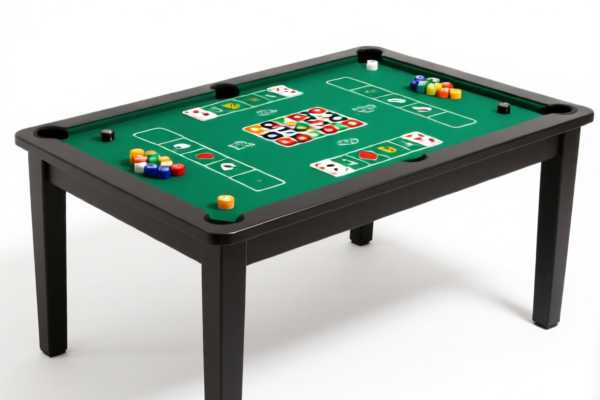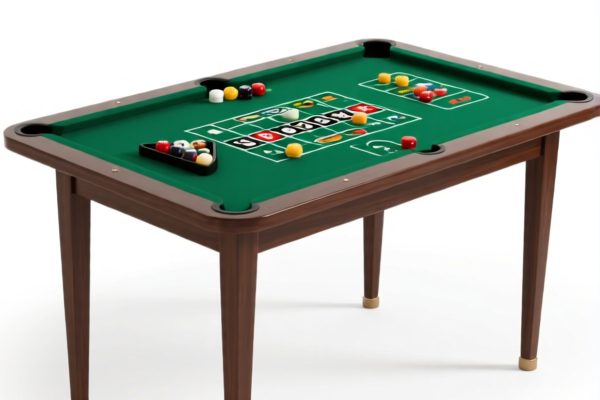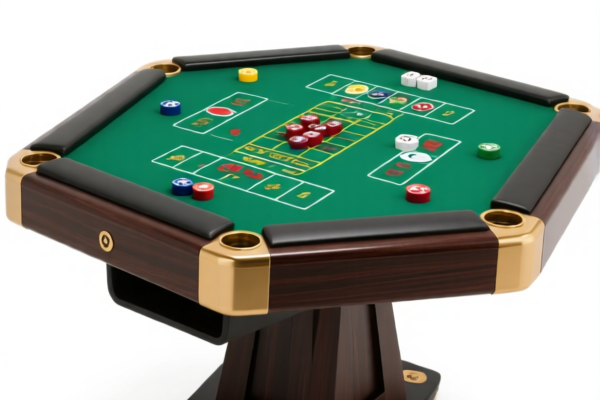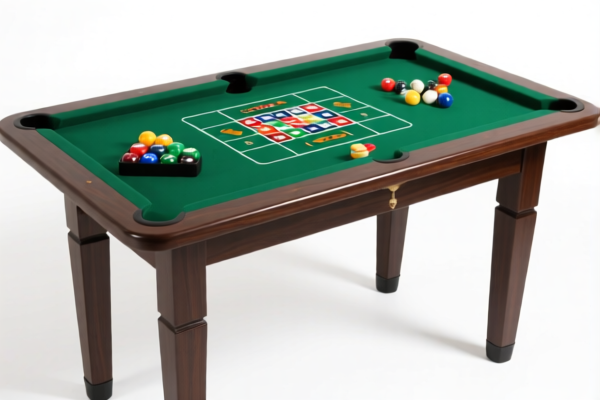| HS Code | Official Doc | Tariff Rate | Origin | Destination | Effective Date |
|---|---|---|---|---|---|
| 9504906000 | Doc | 30.0% | CN | US | 2025-05-12 |
| 9504909080 | Doc | 37.5% | CN | US | 2025-05-12 |
| 9503000090 | Doc | 30.0% | CN | US | 2025-05-12 |
| 9503000071 | Doc | 30.0% | CN | US | 2025-05-12 |
| 3926100000 | Doc | 35.3% | CN | US | 2025-05-12 |
| 3924104000 | Doc | 33.4% | CN | US | 2025-05-12 |
| 3924905650 | Doc | 40.9% | CN | US | 2025-05-12 |




Desktop Games
Desktop games, also known as board games, table top games, or traditional games, represent a category of games played on a surface, typically a table, involving pieces that are moved or manipulated according to a set of rules. They encompass a wide variety of styles, complexities, and player counts.
Materials
The materials used in desktop games are diverse, varying significantly based on the game's design and price point. Common materials include:
- Cardboard: Frequently used for game boards, tiles, and card backs.
- Paper: Used for cards, rulebooks, and scoring pads.
- Plastic: Utilized for game pieces, miniatures, dice, and other components requiring durability or specific shapes.
- Wood: Often found in higher-quality games for boards, pieces, and storage boxes.
- Metal: Employed for miniatures, tokens, or decorative elements.
- Cloth: Used for game boards (e.g., in wargames) or component storage.
Purpose
The primary purpose of desktop games is entertainment and social interaction. However, many games also offer:
- Strategic Thinking: Requiring players to plan moves and anticipate opponents' actions.
- Problem Solving: Presenting challenges that demand logical reasoning and creative solutions.
- Creative Expression: Some games encourage role-playing, storytelling, or artistic interpretation.
- Educational Value: Certain games can teach history, geography, mathematics, or language skills.
Function
Desktop games function through a defined set of rules governing player actions, game progression, and victory conditions. Key functional elements include:
- Turn-Based Play: Players typically take turns performing actions.
- Randomness: Dice rolls, card draws, or other random elements often introduce uncertainty and variability.
- Player Interaction: Games can involve cooperation, competition, or negotiation between players.
- Resource Management: Many games require players to collect and allocate resources effectively.
- Scoring Systems: Points are awarded based on achieving specific objectives or milestones.
Usage Scenarios
Desktop games are suitable for a broad range of social settings:
- Family Game Nights: Providing a shared activity for families to enjoy.
- Social Gatherings: Facilitating interaction and bonding among friends.
- Game Conventions: Offering opportunities to meet fellow enthusiasts and explore new games.
- Educational Environments: Utilizing games as tools for learning and skill development.
- Solo Play: Many games offer single-player variants for individual enjoyment.
Common Types
Desktop games are categorized into numerous genres, including:
- Abstract Strategy Games: Focus on pure strategy with minimal theme (e.g., Chess, Go).
- Eurogames: Emphasize resource management, engine-building, and limited direct conflict (e.g., Settlers of Catan, Ticket to Ride).
- Ameritrash Games: Feature strong themes, direct conflict, and luck-based elements (e.g., Risk, Monopoly).
- Cooperative Games: Players work together to achieve a common goal (e.g., Pandemic, Gloomhaven).
- Party Games: Designed for large groups and emphasize social interaction and lighthearted fun (e.g., Codenames, Cards Against Humanity).
- Wargames: Simulate military conflicts with detailed rules and historical accuracy (e.g., Axis & Allies, Twilight Imperium).
- Role-Playing Games (RPGs): Players assume the roles of characters and embark on adventures guided by a game master (e.g., Dungeons & Dragons).
- Legacy Games: Games that evolve over multiple play sessions, with permanent changes to components and rules (e.g., Pandemic Legacy, Gloomhaven: Jaws of the Lion).
- Deck-Building Games: Players construct their own decks of cards during the game (e.g., Dominion, Clank!).
Desktop games can encompass a variety of items, including video game consoles, table games like chess, and puzzles. Here's a breakdown of relevant HS codes based on the provided information:
- 9504906000: This HS code covers video game consoles and machines, table or parlor games (including pinball machines, billiards, special tables for casino games, and automatic bowling equipment), amusement machines operated by coins, banknotes, bank cards, tokens, or other payment methods. Specifically, it applies to “Other” games, including chess, checkers, parchisi, backgammon, darts, and other board games, as well as mah-jong and dominoes. It also includes these games packaged together as units for retail sale, and poker chips and dice. The current total tax rate is 30.0%, with a base tariff of 0.0% and an additional tariff of 0.0% before April 2, 2025, increasing to 30% after that date.
- 9504909080: This HS code also falls under video game consoles and machines, table or parlor games, and amusement machines. It is categorized as “Other” and applies to games not specifically listed elsewhere. The total tax rate is 37.5%, with a base tariff of 0.0% and an additional tariff of 7.5%, increasing to 30% after April 2, 2025.
- 9503000090: This HS code covers tricycles, scooters, pedal cars, similar wheeled toys, dolls’ carriages, dolls, other toys, reduced-scale models, and puzzles of all kinds, including parts and accessories. The total tax rate is 30.0%, with a base tariff of 0.0% and an additional tariff of 0.0%, increasing to 30% after April 2, 2025.
According to the provided reference material, the HS code options related to 'desktop games' are limited, with only the following 3 found.
Customer Reviews
No reviews yet.